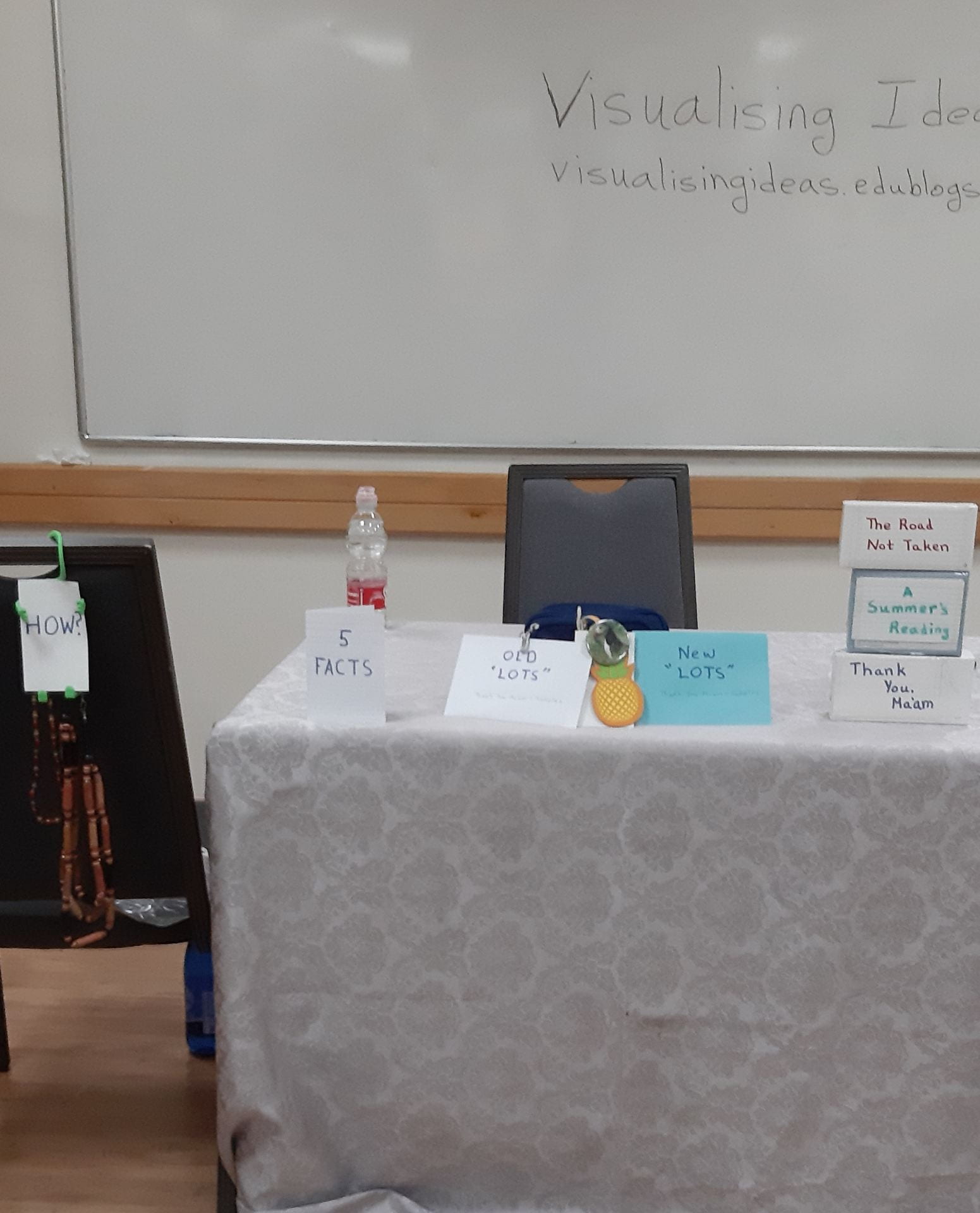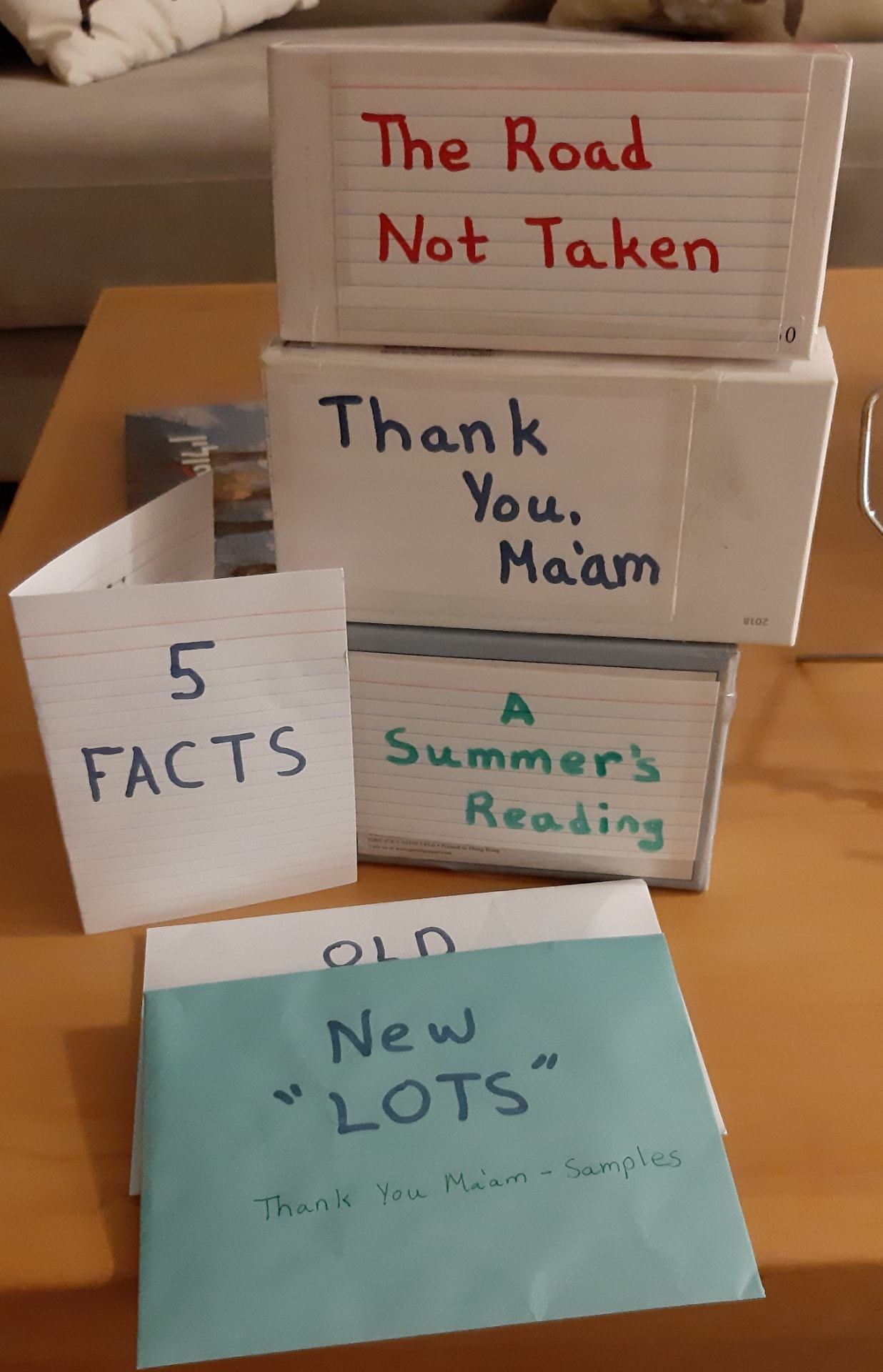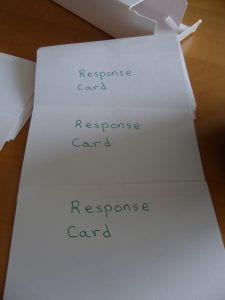
Converging Corners: Struggling Learners, The Literature Program & The Vocabulary Lists
Presentation at ETAI 2019
I began my presentation by stating the following facts that represent the reality in my classroom of Deaf and hard of hearing students and holds true for many other teachers as well.
´* I must teach the literature program.
´* I have many struggling learners – progress in the program is slow.
´* Time – We never actually teach the allotted hours in a semester
´* There are official lists of specific vocabulary items that must be taught and practiced.
´ *All students need to engage multiple times with a word. Struggling learners need to engage with a word more than everyone else!
THEREFORE – NEEDS MUST CONVERGE!
As I teach the literature program I provide opportunities for the learners to engage with the target vocabulary on the official word lists.
During the session, the teachers actively participated in several activities designed to do just that. The relevant links to posts, worksheets, and Quizlet Sets appear below.
Additional activities related to other literary pieces are “in the works” – follow this space!

Thank You, Ma’am
Pre-Reading Activity & New “LOTS” Worksheet
Full post related to the activity including links and information related to the word lists: https://visualisingideas.edublogs.org/2019/01/03/counting-re-entry-of-vocabulary-items-thank-you-maam/
Shortcut to pre-reading activity:
Gift-of-time-pre-reading-Mam-p218o7-1e53wc3
Shortcut to New “LOTS” Worksheet:
Thank You Ma’am Open Questions-2ktog3e
“Matching Activity”
By clicking on the link below you will have:
- information regarding the words from band 2 chosen
- a link to the chosen set of words on Quizlet
- pictures of cards from the activity
- an explanation of how the activity works
- the sentences that appear on the cards.
https://visualisingideas.edublogs.org/2019/02/20/the-joy-of-simple-self-check-activities/
A Summer’s Reading
By clicking on the link below you will have:
- information related to the activity and the words chosen.
- an explanation about the use of Control F as a helpful tool.
- a link to the chosen set of words on Quizlet.
- document with the sentences that appear on the cards.
Shortcut directly to document with the sentences that appear on the cards.
Summer Reading Perspective-1owtxz2
The Road Not Taken
Post describing the activity:
https://visualisingideas.edublogs.org/2019/07/06/daring-to-dive-into-the-dilemma-the-road-not-taken/
A shortcut to the sentences in the activity:
The Road Not Taken Dilemma activity – band two
A link to the Quizlet set of the related words



